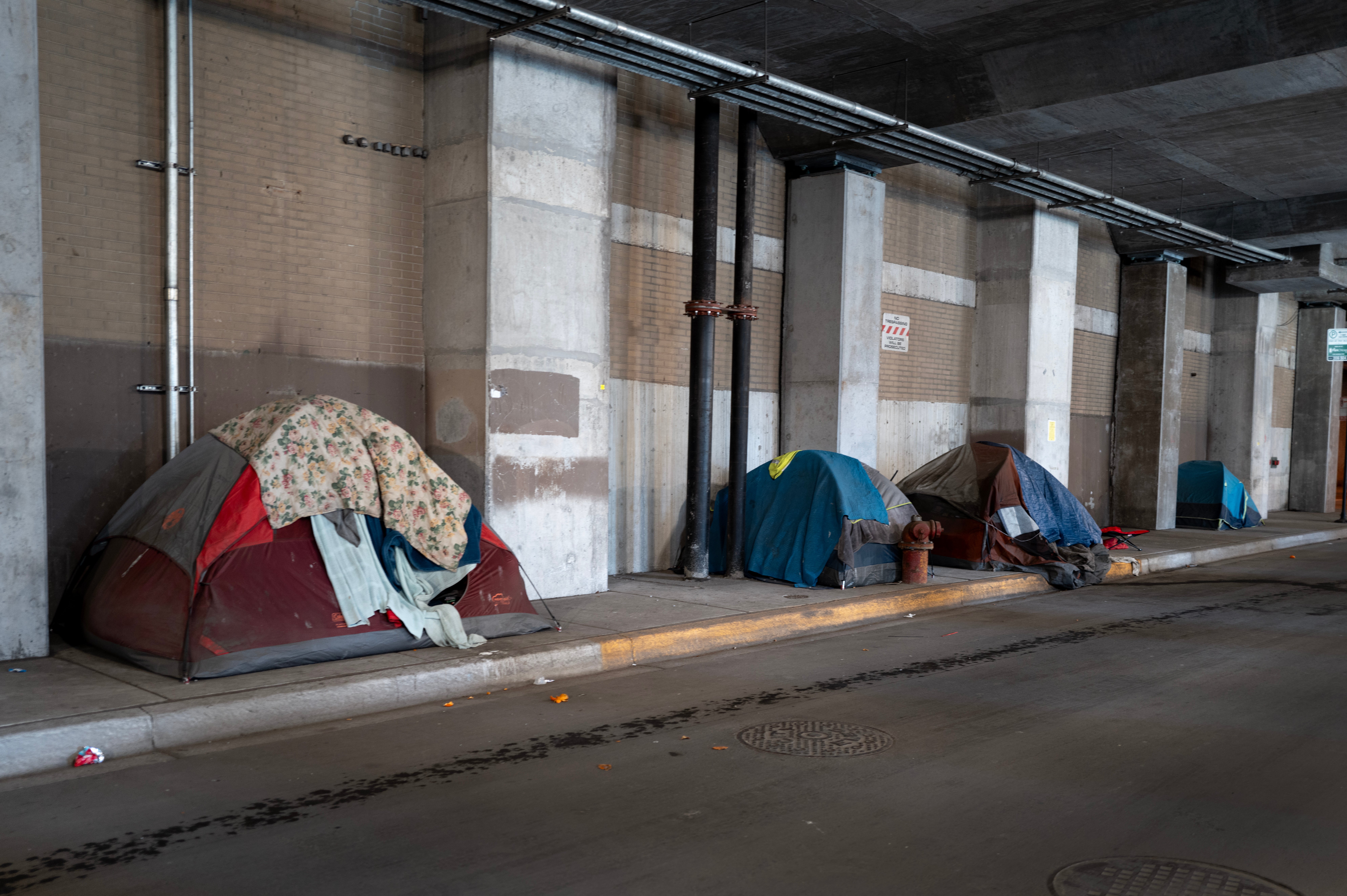‘We cannot arrest our way out of homelessness’: Advocates denounce Supreme Court ruling criminalizing public sleeping
A small Oregon city can punish unhoused people, the Friday ruling by nation’s top court said
Your support helps us to tell the story
From reproductive rights to climate change to Big Tech, The Independent is on the ground when the story is developing. Whether it's investigating the financials of Elon Musk's pro-Trump PAC or producing our latest documentary, 'The A Word', which shines a light on the American women fighting for reproductive rights, we know how important it is to parse out the facts from the messaging.
At such a critical moment in US history, we need reporters on the ground. Your donation allows us to keep sending journalists to speak to both sides of the story.
The Independent is trusted by Americans across the entire political spectrum. And unlike many other quality news outlets, we choose not to lock Americans out of our reporting and analysis with paywalls. We believe quality journalism should be available to everyone, paid for by those who can afford it.
Your support makes all the difference.Human rights groups have condemned the Supreme Court decision to side with an Oregon city’s ban on homelessness, allowing law enforcement to penalize those sleeping in public areas.
The court’s conservative majority ruled that the small city of Grants Pass’s law ticketing, fining, and jailing unhoused people did not violate the Eighth Amendment’s “cruel and unusual” punishment clause.
Justice Sonia Sotomayor wrote in her dissent that the court’s conservatives ignored the “humanity and dignity” of people experiencing homelessness, adding that their decision “leaves the most vulnerable in our society with an impossible choice: Either stay awake or be arrested.”
Civil rights groups and homeless rights activists condemned the 6-3 ruling, underscoring the effects the decision will have on vulnerable populations.
“We cannot arrest our way out of homelessness,” Scout Katovich, an ACLU attorney in the Trone Center for Justice and Equality, said in a statement. “It is hard to imagine a starker example of excessive punishment than fining and jailing a person for the basic human act of sleeping.”
The National Homelessness Law Center in a statement called the criminalization of homelessness “expensive, counterproductive, and cruel.” The statement continued: “While we are disappointed, we are not surprised that this Supreme Court ruled against the interests of our poorest neighbors.”

The group also called on the Biden administration and Congress to invest funding into universal rental assistance for lowest-income households, eviction and homelessness prevention, public housing repair and preservation, and other support services.
The decision sets “a dangerous precedent that will cause undue harm to people experiencing homelessness and give free rein to local officials who prefer pointless and expensive arrests and imprisonment, rather than real solutions,” Ann Oliva, the CEO of the National Alliance to End Homelessness, said in a statement. She added that the ruling allows elected officials “ to shift the burden to law enforcement” rather than focusing on “long-term, sustainable solutions,” like funding affordable housing and supportive services.
Kirsten Anderson, the deputy legal director for economic justice at the Southern Poverty Law Center, said the country should “address the issues that are causing housing to be unaffordable,” rather than punishing those without a home: “Homelessness is a humanitarian crisis, not a moral failing.
Although the court’s ruling concerned Grants Pass — where as many as 600 people in the 39,000-person city experience homelessness per day, the small city’s laws penalizing homelessness are part of a larger trend across the country.
Florida Governor Ron DeSantis signed a measure into law in March prohibiting “public camping or sleeping,” including the presence of “bedding or pillows” – on “any” public property in the state. DeSantis has yet to comment on Friday’s ruling. The Independent has emailed his office for comment.
Republican 2024 hopeful Donald Trump unveiled a campaign policy in April 2023: banning “urban camping wherever possible.” He said in a video at the time: “Violators of these bans will be arrested, but they will be given the option to accept treatment and services if they’re willing to be rehabilitated.”
Join our commenting forum
Join thought-provoking conversations, follow other Independent readers and see their replies
Comments